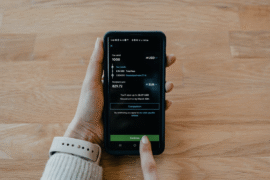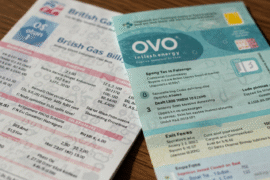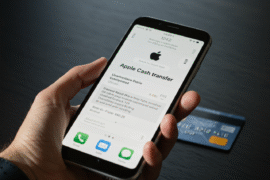This article may contain references to products or services from one or more of our advertisers or partners. We may receive compensation when you click on links to those products or services. Nonetheless, our opinions are our own.
The information presented in this article is accurate to the best of our knowledge at the time of publication. However, information is subject to change, and no guarantees are made about the continued accuracy or completeness of this content after its publication date.
- Introduction
- Challenges That Come With a Tight Budget
- Common Causes of Budget Constraints
- Financial Stress and Its Effects
- Mindset Shifts That Support Budgeting
- How to Build a Proactive Budgeting Routine
- How to Set Realistic Financial Goals
- Budgeting Tools and How to Prepare
- How to Build Support for Financial Goals
- Steps to Follow for Better Money Management
- Ways to Cut Spending Day-to-Day
- Ideas for Boosting Income
- Final Thoughts
- Frequently Asked Questions
- Recommended Reads
Introduction
Dealing with your own money when you do not have a lot to spend can be hard. People or families who get by one paycheck at a time often feel like their money is gone before the month ends. Bills can pile up fast. A surprise cost, or just buying what you need, may feel like too much, even if you try to plan well.
But getting through a tight budget is not out of reach. If you start to use simple money tips, try new habits, and make use of tools that are out there, you can have a better plan for your money and feel safer about what comes next. This guide will show you ways that work to handle your money better, spend less on things you do not need, get more income, and feel good about your money, even when you do not have a lot.
Challenges That Come With a Tight Budget
Living on a small monthly income can feel hard. A lot of the money goes to things you must pay for, like groceries, utility bills, or getting around. There is not much left to save or use if something bad happens. It can be tough to plan for the future, too.
In these times, people often need to cut back on things they enjoy. They might spend less time on fun or with friends. Some stop spending money on things they do not need just to keep up with bills. When we see these money problems, it is the first step to fixing them.
Common Causes of Budget Constraints
- Paycheck-to-Paycheck Living: When you spend your pay on the same bills like rent, car loans, or card payments, there is not much left for savings or for when you have an emergency.
- Untracked Small Expenses: When you buy things often, like a drink or a subscription, it seems small. But they add up. If you do not track them, these costs can eat into your money fast.
- High Interest Debt: If you often use cards and do not pay them off any time soon, the amount you owe keeps going up. This is because of the high fees that get added. It gets hard to get out of this unless you have a good plan.
Using a simple budgeting plan helps you spot and stop these money leaks.
Financial Stress and Its Effects
Unmanaged money worries can hurt your mind and the way you make choices. When you pay your utility bills late or miss a credit card payment, you feel even more stress about money. This stress keeps growing, making things feel worse as time goes on.
Unexpected costs, like fixing your car or paying for doctor visits, can make it even harder to feel stable with money, especially if you do not have any savings. If you think ahead and start good money habits now, it will help to lower the stress and money problems as time goes by.
Mindset Shifts That Support Budgeting
- Goal-Oriented Thinking: When you set clear goals, like starting an emergency fund or saving some money each week, you build up good money habits and feel better about where your money goes. Doing this often keeps you on track.
- Solution-Based Approach: If you see making a budget as something that helps you, it will help you keep good habits about money for a long time and learn what to do with your money.
How to Build a Proactive Budgeting Routine
- Keep your receipts or use budgeting apps to track what you spend each day.
- Set up automatic payments for your bills and savings so you do not have to worry about late fees.
- Watch how much you spend on extra things, like eating out or fun activities.
Being aware of how you spend helps you make better choices with your money and gives you strength to handle money problems.
Voted "Best Overall Budgeting App" by Forbes and WSJ
Monarch Money helps you budget, track spending, set goals, and plan your financial future—all in one app.
Get 50% OFF your first year with code MONARCHVIP
How to Set Realistic Financial Goals
- Put a set amount of money from each paycheck into savings.
- Keep a minimum amount in your savings accounts so you do not have to pay fees.
- Set up a monthly meeting to see how you are doing and make any changes you need.
These easy steps help you build good money habits. They also help you and your family feel more stable over time.
Budgeting Tools and How to Prepare
Budgeting gets better when you have the right tools and get ready in the right way. You need to collect important documents like:
- Recent bank statements
- Receipts for bills you pay often
- Your gas, water, or electric bills and records that show you made loan payments
Free apps such as Mint, YNAB (You Need A Budget), and PocketGuard are simple to use. You can link your accounts to them, and they will show you your spending habits in real time. Some people still like to use a spreadsheet or a checkbook for this, and that can work well, too.
Planning your meals and making a shopping list can help you spend money in a better way. It helps you not buy things you do not need. A list makes it easy to stick to what you plan to get and keeps you from grabbing extra items.
How to Build Support for Financial Goals
- Talk about your money goals with family or friends you trust. They can help you stay on track.
- Get advice from planners who know how to help with money matters. This is helpful when you go through tough money times.
- Be part of groups in your area or online. You can use what others know and share helpful things together.
Talking openly about money helps people work together to solve problems. It also makes everyone feel stronger and closer.
Steps to Follow for Better Money Management
Track Every Expense
Good budgeting starts when you know where all your money goes. You can use apps or a simple spreadsheet for this. Put each thing you buy or pay for into a group. When you see all your spending like this, it will help you spot any waste. It can also help you make better choices with your money.
Separate Needs and Extras
Know the difference between must-have expenses like rent, food, and utilities and extra spending like subscriptions or takeout. This will help you see the places you can cut costs without hurting your main needs.
Create and Follow a Monthly Budget
List all sources of income and take out fixed expenses. Put funds into savings before you spend on other things you want. Change the plan every month if needs or costs go up or down.
Set Up Automated Savings
Set up direct transfers to your savings account every payday. Even small automatic payments can help you build an emergency fund. This will also make you save money often and feel good about it.
Ways to Cut Spending Day-to-Day
Improve Grocery Habits
- Make a list and stick to it.
- Buy store brands.
- Use cashback and discount apps.
- Do not make unplanned purchases.
These steps help to cut costs. They also support better habits for your health.
Cut Utility and Housing Costs
- Use appliances that save energy.
- Change thermostat settings when the season changes.
- Look for rental options that cost less or try to talk about the rent.
- Cut down on services that you do not need.
Even small changes can help you save money every month.
Ideas for Boosting Income
Try Side Jobs
Think about part-time freelance jobs, gig work like delivery or rideshare, or selling things you make by hand. These can give you more freedom with your time. They also help add to your usual income.
Seek Community Support
Local nonprofits, food banks, or government programs can help with basic needs. Workshops about money and support services can help you with your money skills. These also help you feel better about your own money. This will help you not use credit as much.
Final Thoughts
Getting through a tight budget starts with smart choices and good habits. You need to know what you really need, watch every expense, and set goals you can reach. This helps you to be in charge of your money.
Even small changes in the way you live, like setting up automatic savings or planning meals, can lead to clear benefits. When you add support from your community and keep learning, these methods can help you feel safe about money for years. Making a budget when you have a small income can be done. It can feel good and in control if you go at it with a clear plan and stick with it.
Frequently Asked Questions
How can money be saved when income barely covers bills?
Start by putting your most important costs first. Use coupons when you shop. You can check and compare utility rates to save money. Have a look at any government help programs that are out there. Taking on small side jobs or some freelance work can help you make extra money. Making small changes now can help you see better results over time.
Which budgeting apps are best for beginners?
Top-rated options include:
- Mint: Tracks how you spend money and helps you set money goals
- YNAB: Helps you plan your budget ahead of time and think about what is next
- PocketGuard: Shows you how much money you have left to spend after you pay for the things you need
These tools make it easy to do your budget. They help you know more about your money.
How can spending be reduced without feeling deprived?
Try things like prepping your meals ahead of time, using cashback apps, and setting spending limits on things you do not really need. When you save money like this, use it for your important goals. This can help you feel good about your spending and stay on track without giving up your happiness.
What is the best way to manage surprise expenses on a tight budget?
Get ready by building an emergency fund. You can do this by saving a little money often. When surprises come up, change how much you spend on things you do not need. If you need help, get in touch with your service provider and ask about payment plans.

Reviewed and edited by Albert Fang.
See a typo or want to suggest an edit/revision to the content? Use the contact us form to provide feedback.
At FangWallet, we value editorial integrity and open collaboration in curating quality content for readers to enjoy. Much appreciated for the assist.
Did you like our article and find it insightful? We encourage sharing the article link with family and friends to benefit as well - better yet, sharing on social media. Thank you for the support! 🍉
Article Title: Smart Budgeting Tips for Tight Finances
https://fangwallet.com/2025/07/16/smart-budgeting-tips-for-tight-finances/The FangWallet Promise
FangWallet is an editorially independent resource - founded on breaking down challenging financial concepts for anyone to understand since 2014. While we adhere to editorial integrity, note that this post may contain references to products from our partners.
The FangWallet promise is always to have your best interest in mind and be transparent and honest about the financial picture.
Become an Insider

Subscribe to get a free daily budget planner printable to help get your money on track!
Make passive money the right way. No spam.
Editorial Disclaimer: The editorial content on this page is not provided by any of the companies mentioned. The opinions expressed here are the author's alone.
The content of this website is for informational purposes only and does not represent investment advice, or an offer or solicitation to buy or sell any security, investment, or product. Investors are encouraged to do their own due diligence, and, if necessary, consult professional advising before making any investment decisions. Investing involves a high degree of risk, and financial losses may occur including the potential loss of principal.
Source Citation References:
+ Inspo
There are no additional citations or references to note for this article at this time.












































